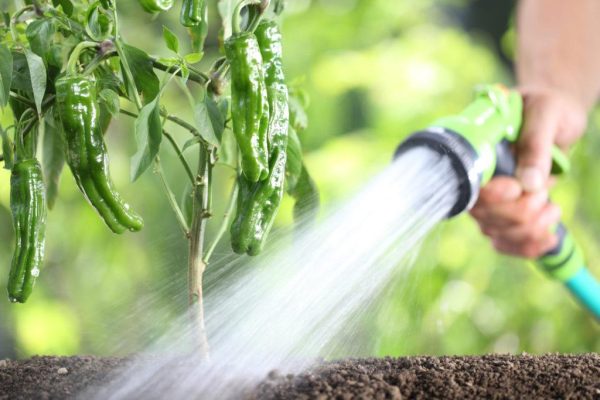Thanks to Ryan Conway for writing this article!

Mutations in cannabis plants can lead to a variety of effects that impact their growth, development, and chemical composition. Cannabis has undergone a countless amount of genetic mutations that have shaped its characteristics, effects, and applications. These mutations are caused by natural processes or induced through selective breeding and genetic manipulation have contributed to the vast diversity of cannabis strains available today.
Understanding the effects of mutations on cannabis is crucial for both recreational and medicinal purposes, as it can influence the potency, flavor, and therapeutic properties of the plant.
Cannabis mutations are genetic variations that arise due to changes in the DNA sequence of the plant. These mutations can occur spontaneously through natural processes or can be induced purposefully through breeding techniques. The genetic makeup of cannabis is complex, with multiple genes controlling various traits such as cannabinoid production, terpene synthesis, and plant structure.
One of the effects of mutations in cannabis is their impact on cannabinoid content. Cannabinoids, the active compounds in cannabis, are responsible for the plant’s psychoactive and therapeutic effects. Mutations can lead to changes in the expression of genes resulting in altered ratios of cannabinoids in a given strain.

For instance, a mutation may lead to increased levels of delta 9 tetrahydrocannabinol (THC), the primary psychoactive compound in cannabis, leading to strains with higher potency and stronger psychoactive effects. Conversely, mutations can also enhance the production of cannabidiol (CBD), a nonpsychoactive compound known for its potential therapeutic benefits such as pain relief and anti-inflammatory properties.

Flavor and aroma are also impacted by mutations. Terpenes are aromatic compounds found in cannabis that contribute to its distinctive smell and flavor. Mutations can influence the expression of terpene-related genes, leading to changes in the terpene profile of a strain. These alterations can result in variations in aroma, taste, and overall sensory experience.
A mutation might lead to an increased presence of specific terpenes, giving rise to unique aromatic profiles such as fruity, citrusy, or earthy scents. These changes not only contribute to the diversity of cannabis strains but also play a role in consumer preferences and strain selection.

Plant morphology is another area affected by mutations. Cannabis mutations can also impact plant morphology and structure. Changes in growth patterns, leaf shape, structure, and overall plant shape may occur due to mutations in genes controlling development. These alterations can have practical implications for cultivators, requiring adjustments to cultivation techniques to accommodate mutated plants.
For example, a mutation affecting root development could influence nutrient uptake and water requirements, necessitating modified cultivation practices to ensure optimal growth. Additionally, mutations may result in variations in flowering times, which can affect harvest schedules and overall yield.
*Stress Resistance and Resilience
Certain mutations can confer advantages or disadvantages in terms of stress resistance and resilience. Some mutations may make cannabis plants more resistant to pests, diseases, or environmental stressors, contributing to sustainable and organic cultivation practices. These mutated strains could reduce the need for chemical interventions, promoting environmentally friendly cultivation methods.

Conversely, mutations might lead to increased vulnerability to specific stressors, potentially compromising plant health and reducing yields. Understanding the genetic basis of stress responses can aid breeders in developing strains that are better adapted to specific growing conditions.
Cannabis mutations can pose regulatory challenges in regions with specific requirements for cannabinoid composition or terpene profiles. Mutated strains might unintentionally exceed legal THC limits or deviate from regulatory guidelines. Ensuring compliance with these regulations while harnessing the benefits of genetic diversity is a crucial aspect of the cannabis industry’s growth.
In conclusion, cannabis mutations play a pivotal role in shaping the effects of cannabis plants and giving a diverse array of strains available to cultivators today. These genetic variations influence cannabinoid content, terpene profiles, plant morphology, stress resistance, and even legal and regulatory considerations.
Whether intentional through breeding or natural through genetic variation, mutations offer a pathway to creating unique and diverse cannabis strains with a wide range of applications. As the cannabis industry continues to grow, a vast understanding of the effects of mutations will be essential for breeders, cultivators, researchers, and regulators alike.
Embracing and harnessing the genetic diversity of cannabis has the potential to drive innovation, expand therapeutic applications, and create new opportunities within this rapidly evolving field.
We welcome our growing experts or people who have long-time experience in growing to share your knowledge and perspectives, we’ll award each outstanding professional article a $200 gift card. Don’t miss this opportunity!
As always if you have any questions you can message our Instagram or Facebook and we’ll be glad to help you out! Join our Facebook farmer’s community for even more exclusive contests and prizes!
Subscribe to the VIVOSUN newsletter for growing tips, grower stories, and special offers, and get 12% off your first order!
We love the new VIVOSUN Smart Grow System and we are certain that you too will love it once you try it.





